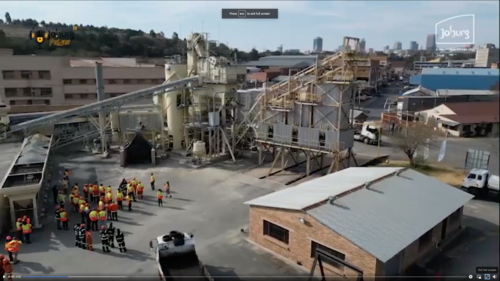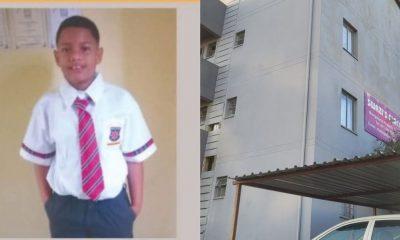News
JRA Reopens Asphalt Plant After Year-Long Pause

The Johannesburg Roads Agency (JRA) has successfully reinstated its dormant asphalt plant in Booysens, marking a significant achievement after a year of inactivity. This crucial plant produces the essential asphalt required for road construction and repairs throughout the city. Its operations ceased in August 2022 due to technical and operational challenges, primarily the absence of an appointed bitumen supplier, a key ingredient in asphalt production as reported by Joburg Newsroom.
Also Read: FlySafair Launches Affordable Johannesburg to Harare Flights
Zweli Nyathi, the Acting Chief Executive Officer of the JRA, expressed satisfaction with the recent progress. He stated, “We are pleased to announce the finalisation of a new bitumen supplier and that today our asphalt plant is being re-commissioned to full operation.”
The revival of the asphalt plant holds profound implications for the city. It enables the JRA to resume independent provision of asphalt, supporting road maintenance and construction efforts. This promises improved operational efficiency and translates into significant cost savings, showcasing the JRA’s steadfast dedication to responsible resource management.
With a 200 tonnes per hour production capacity, the JRA’s asphalt plant can produce an impressive 1,520 tonnes per day. This substantial output equates to the potential resurfacing of approximately 2.5 kilometres of road daily.
The asphalt mixture produced by the plant plays a pivotal role in various applications. The hot mix variant is utilised for road repairs, resurfacing, and construction, while the cold bagged mix serves as a temporary yet crucial solution for emergency repairs. The latter cold mix plant is currently operational, producing 40 bags of cold mix per tonne as needed.
The new asphalt plant was established in 2018 as a response to the challenges posed by its predecessor, which dated back to the 1960s. The older plant had become a health hazard due to pollutant emissions and an inability to meet the escalating asphalt demands of the city’s road maintenance and infrastructure initiatives.
Councillor Kenny Kunene, the Member of the Mayoral Committee (MMC) for Transport, praised the re-commissioning of the JRA’s asphalt plant as a momentous achievement. He emphasised that the JRA will no longer depend on third parties to supply hot and cold mix, leading to improved service delivery for road maintenance, pothole repairs, and road resurfacing.
Asphalt tar roads account for a significant portion, precisely 12,431 kilometres, of Johannesburg’s extensive 13,599-kilometer road network. To preserve the integrity of this network, the JRA conducts thorough visual condition assessments at regular intervals. South African roads generally have an approximate lifespan of 25 years, requiring consistent and proactive maintenance efforts.
Various factors, including extreme weather patterns, insufficient pre-emptive maintenance, neglect of stormwater management, excessive stress from heavy vehicles, and unregulated excavation for new services, influence the deterioration of road conditions.
Guided by a meticulous road management approach, the JRA places paramount importance on visual condition assessment, informing a response plan that prioritises the preservation of existing road infrastructure and prevents its deterioration.
A comprehensive visual condition assessment of the city’s road network highlighted a pressing need for resurfacing, with 2,852 kilometres of roads scheduled for this essential procedure. Additionally, 3,968 kilometres are classified as ranging from poor to very poor conditions, necessitating reconstruction efforts.
Nyathi stated that the JRA’s response plan involves proactive measures, including pothole repairs, crack sealing, and road resurfacing, all anchored by the use of asphalt.
The situation’s urgency is further underscored by a significant R11.8 billion backlog required for surfacing and upgrading gravel roads. To achieve these objectives, a substantial allocation of R7.1 billion is designated for surfaced road enhancement, with an additional R4.7 billion allocated for transforming gravel roads into asphalt.
Despite acknowledging budgetary challenges, Councillor Kunene reiterated a steadfast commitment to providing quality roads for motorists in Johannesburg. The present fiscal year (2023/24) will witness an allocation of R111 million for resurfacing 112 lane kilometres of the road network.
Spearheading a resolute commitment to enhancing road infrastructure, the JRA’s ongoing road resurfacing initiative stands as a pivotal element in Johannesburg’s urban development strategy.
Also Read:
Follow us on Google News
Photo: Facebook / @Johannesburg Roads Agency






















